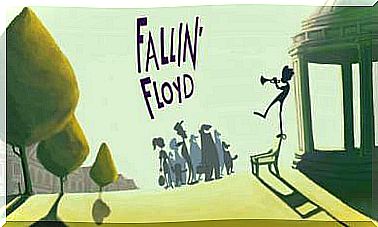Is Knowing What We Want Enough?

To begin with, I propose that you take a few minutes to answer these two questions: whether you feel good about the life you lead and whether you feel satisfied with what you’ve achieved. Sometimes knowing what you want is complicated. It may be that the restless pace of your life doesn’t leave you time to reflect on whether you’re living the way you want to, or whether there are goals you’d still like to reach. Or maybe you already have clear goals but don’t know how to start on the path that will lead to achieving them.
If that’s the case, if you have goals you want to achieve, in this article I’ll give you some tips that can help you achieve them. But first I would like to accompany you in a reflection on your life, on the path you are following and on how you make your decisions, since knowing what you want, having your own criteria and being on the “correct” path is the basis so that the goals you want to achieve really have a coherent meaning in your life.
Do you have a compass that guides your path?
Whether or not you have some specific goals in mind, always try to stick to a general goal. Build a compass that is a guide so you always know where your four cardinal points are. This compass may not have the ability to avoid obstacles, but it will keep you from getting lost or disoriented.
Your path can take many turns, it can go up and down, you may encounter obstacles and storms that you will have to cross, but the key is to know that you are on the “right” path. In addition, the way you progress will bring out what is most valuable to you, and this is essential for your life to have more meaning.

How can you know if you are on the right path?
In the beginning, you will always be accompanied by uncertainty about whether the decision to be made is the right one or whether what you are going to do is the best choice. It’s normal, as this uncertainty is part of the risk that accompanies many of the decisions we face in life.
There is no one in the world who can guarantee that you are on the right path or on the best. Fortunately, there is more than one right path, including different paths that lead to the same place. In any case, being the one who decides the course will always be a good omen.
It’s not difficult to know what you want and find your own path, what happens is that you’re not used to doing it. You often let other people guide you, perhaps out of convenience or fear of not getting the results you expect. Sometimes you trust other people more than you trust yourself, but no one knows better than you what suits your own life.
Listen to your emotions, they will provide the information you need and this will help you to develop your own judgment, which is what will allow you to reach a state of “autonomy”.
Do you decide with your mind or with your heart?
After listening to your emotions, use reason to follow the signs that appear. It is a combined work in which the balance between information sources (emotions) and working with those information sources (reason and intuition) is what will somehow increase our chances of success.
Within this balance, motivation plays a key role. As Grad, M. (2015) states, you won’t believe you can do it until you do. Despite this, on the other hand it is also good to analyze whether these goals are realistic, if achieving them is within your possibilities.
Is knowing what we want enough?
Once you realize the importance of going your own way in a general sense, you’ll likely have some goals that you’d like to achieve on a more practical level, but which in turn provide a greater sense of well-being and fulfillment. These goals can be quite diverse: wanting to do more sports, learn a language, tidy up your room or house, get into the habit of meditating every day, etc.
However, knowing what you want is not enough. It doesn’t do any good if you just settle for the idea, like, for example, “I want to exercise more”, since it will work as if you hadn’t proposed any goals. In order to really be able to fulfill your purposes, in addition to being motivated, planning is essential, as stated by Dr. Díaz in his article “Thinking about the future throughout the life cycle”.

In this way, the concrete objectives are those that will shape the general objective that we referred to at the beginning of this article. As Toja and Bravi (2015) exemplify, instead of saying “I’m going to exercise more”, it’s better to define more specifically the goal: “I’ll do ten sets of sit-ups a day”. That way, you don’t have such abstract information, but something concrete that you can commit to accomplish. As you can see, knowing what you want is not enough.
How can you reach your goals?
Sometimes your challenge can be too big, like “I want to run a marathon”. In this case, thinking about the goal can be frightening and even cause procrastination. That’s why it ‘s important to divide the goal into parts, for example, training 30 minutes a day. It’s about starting with the most accessible goals and, when you’re comfortable with them, moving on to more challenging ones or increasing your time.
It’s also very helpful to focus on the time of day you’re going to work towards your goal. It can be when you wake up in the morning, when you get home from work, or you can set a specific time. This is a fundamental point, since if you don’t focus on the moment you are going to do it, hours can pass without you realizing it and without you having managed to find a moment to dedicate yourself to your goal.
One of the key points for achieving the goals, according to Pérez (2014), is to define a goal he calls “zero tolerance”: this is not the ideal goal you want to achieve, it’s much simpler, but that’s exactly why you must perform without any excuse not to lose regularity.
For example, if your goal is to train 30 minutes a day, but any day it’s really hard to meet that goal, you can meet the goal of “zero tolerance” which could be training for 5 minutes. You definitely have 5 minutes to dedicate! This will help maintain regularity.
What do you need to take action?
Once you know what you want, listen to your emotions, and plan your goals, all that remains is for action. To succeed in achieving your goals, I suggest you follow all these tips and, above all, remember that it is important to be optimistic and believe in a better future, as this way you can pursue your goals with greater perseverance .
Furthermore, rather than knowing what you want, you must keep in mind why you want to achieve these goals. Remembering this will give you strength and will reflect the meaning of your effort. Don’t give up, each day you get closer to your achievement.
Bibliography
-Grad, M. (2015). The princess who believed in the accounts of fairies. Barcelona: Ediciones Obelisco.
-Perez, A. (2014). The 88 peldaños of success. Barcelona: Alienta Editorial.
-Toja, O. and Bravi, S. (2015). Positive attitude for perezosas. Barcelona: Editorial Planet.









